 Director, Middle East Nonproliferation Program
Director, Middle East Nonproliferation Program
[email protected]
Washington DC
202.601.2330
Activities
Dr. Chen Zak Kane focuses on projects related to reducing the proliferation of weapons of mass destruction and terrorism, with a particular focus on the Middle East. In addition, she examines means to strengthen the International Atomic Energy Agency’s safeguards system and the projected expansion of nuclear energy in the Middle East. Dr. Kane also serves as a Project Lead of the Middle East Weapons of Mass Destruction Free Zone Project at the United Nations Institute for Disarmament Research. Dr Kane is the founder of the Middle East Next Generation Arms Control Network (http://www.menacs.org/). She has held research positions at the Belfer Center for Science and International Affairs at Harvard University, as well as the Washington Institute for Near East Policy. Dr Kane was an adviser to both the Jebsen Center for Counter-Terrorism at Tufts University, the Crown Center for Middle East Studies at Brandeis University, as well as an adjunct professor with the National Defense University. Prior to joining CNS, she worked at the Center for Strategic and International Studies (CSIS). She holds a PhD and MALD from Tufts University’s Fletcher School of Law and Diplomacy and MA and BA from Tel Aviv University.
Areas of Research
- Disarmament and Verification
- Export Controls
- International Treaties & Regimes
- Iran
- Iraq
- Middle East
- Nuclear energy in the Middle East
- Nuclear-Weapon-Free Zones
- Proliferation of WMD in the ME
- WMD Free Zone in the Middle East
Education
- B.A. in sociology, anthropology, and political science from Tel Aviv University
- M.A. in security studies from Tel Aviv University
- M.A.L.D. and a Ph.D. from Tufts University’s Fletcher School of Law and Diplomacy
CNS Work
- President Trump Ready to Decertify Iran Deal
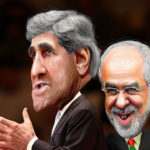 The end of the JCPOA could have serious, complicating effects on proliferation, regional security, and international trade.
The end of the JCPOA could have serious, complicating effects on proliferation, regional security, and international trade. - US Blames Assad Regime for Worst Chemical Weapons Attack in Syria in Years
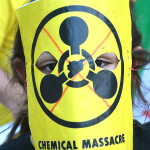 For more on the implications of this latest development, CNS experts are available for comment.
For more on the implications of this latest development, CNS experts are available for comment. - Why the US-Israel Military Aid Package Matters
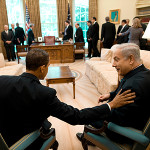 Despite record levels of US military assistance to Israel under the Obama administration, the state of US-Israel relations has worsened, not strengthened, in recent years.
Despite record levels of US military assistance to Israel under the Obama administration, the state of US-Israel relations has worsened, not strengthened, in recent years. - Toward the 8th BWC Review Conference
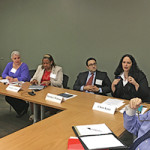 JULY 8, 2016: CNS and the US Department of State co-sponsored a workshop on the the Eighth Review Conference of the Biological and Toxin Weapons Convention (BWC).
JULY 8, 2016: CNS and the US Department of State co-sponsored a workshop on the the Eighth Review Conference of the Biological and Toxin Weapons Convention (BWC). - Iran Deal Provides Greater Opportunity for Regional Stability
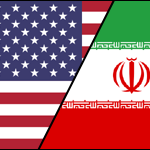 In an unstable Middle East neighborhood, most people hope for the best and plan for the worst.
In an unstable Middle East neighborhood, most people hope for the best and plan for the worst. - Middle East Next Generation of Arms Control Specialists Network (MENACS)
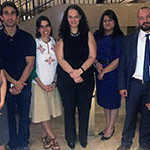 Young Middle Eastern professionals to work with delegations at the Biological Weapons Convention.
Young Middle Eastern professionals to work with delegations at the Biological Weapons Convention. - Elimination of Weapons of Mass Destruction (WMD) – Lessons Learned
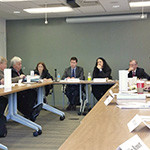 On November 9-10, 2015, CNS and the Lugar Center held a workshop that was part of a project supported by DTRA.
On November 9-10, 2015, CNS and the Lugar Center held a workshop that was part of a project supported by DTRA. - Media Advisory: Understanding the Final Iran Agreement
 Experts from CNS and VCDNP are available for comment on a range of aspects pertaining to the final Iran nuclear deal and its implications.
Experts from CNS and VCDNP are available for comment on a range of aspects pertaining to the final Iran nuclear deal and its implications. - OP#22: Planning Ahead: A Blueprint to a Middle East WMD Free Zone
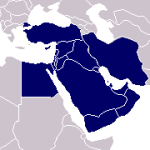 Occasional Paper #22: A CNS report offers legal, technical, and organizational proposals to negotiations and implementation of a WMD-free Middle East.
Occasional Paper #22: A CNS report offers legal, technical, and organizational proposals to negotiations and implementation of a WMD-free Middle East. - WMDFZ in the Middle East: What Now?
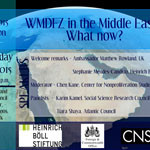 CNS will host a panel event during the NPT Review Conference to explore ways toward a Middle East zone free of weapons of mass destruction.
CNS will host a panel event during the NPT Review Conference to explore ways toward a Middle East zone free of weapons of mass destruction.
Bibliography
- Nuclear Decision-Making in Iran: A Rare Glimpse, Middle East Brief 5, May 2006.
- “The Middle East’s Interrupted Atomic Dreams,” Foreign Policy, Dec. 29, 2009.
- Nonproliferation Issues in U.S.-ROK Nuclear Cooperation, in U.S.-ROK Workshop on Nuclear Energy and Nonproliferation, the Henry L. Stimson Center and The Asia Foundation Center for U.S.-Korea Policy, January 20, 2010.
- Report of the Technical Advisory Group on Nuclear Energy in the Middle East, November 16, 2010.
- “Going Global: Issues Facing South Korea as an Emerging Nuclear Exporter,” Joint U.S.-Korea Academic Studies.
- “Time for Leadership: South Korea and Nuclear Nonproliferation,” Arms Control Today, March 2011.
- “From Donor to Partner: The Evolution of U.S. Cooperative Threat Reduction into Global Security Engagement” NTI Issue Brief, May 12, 2011.
- Scientific Engagement In The Middle East: Nonproliferation, Responsible Bioscience, and the Environment, Presentation at Global Green USA event, July 2011.
- “The role of civil society in promoting a WMDFZ in the Middle East” Disarmament Forum UNIDIR, issue 2, 2011.
